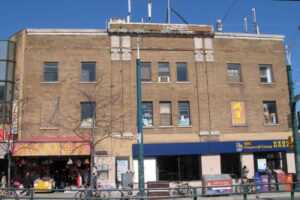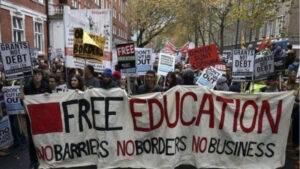Anglophone Dynamics in Quebec Media
Quebec’s media landscape has forever been embroiled in the intricacies of language politics. The province’s Anglophone community, often referred to as “Anglos,” have navigated this terrain with resilience and adaptability. While French dominates the airwaves, there exists a robust ecosystem of English media, of which the Gazette stands tall. However, the year 2011 witnessed a storm brewing as stalwarts of this ecosystem, notably the Gazette’s Don Macpherson, clashed with the venerable CBC Daybreak on Twitter. But why? What’s the beef all about? Grab a cuppa, and let’s dive into this media melee.
The Origins of the Spat
No tiff starts without a genesis. The crux of this disagreement between Macpherson and CBC Daybreak revolved around the representation of Anglos in Quebec media. Macpherson, known for his razor-sharp critiques, was of the view that CBC Daybreak was pandering to a particular narrative, which, in his opinion, was skewed.
-
Macpherson’s Allegations
On Twitter, where emotions often run high, Macpherson pointed out what he believed to be a ‘selective portrayal’ by CBC Daybreak. He felt that their content didn’t truly resonate with the grassroot realities of the Anglo community. Instead, it seemed tailor-made for a certain demographic, alienating a vast swathe of Anglos. -
CBC Daybreak’s Defense
Daybreak didn’t take this lying down. In their counter, they held that their content was balanced. They believed that as a public broadcaster, their duty was to represent all segments of society, not just a niche.
In the World of Hashtags and Retweets
In the digital age, Twitter is the new battleground. The dispute soon spiraled, with netizens picking sides. The hashtag #AngloFight trended for days, making the disagreement a public spectacle. Both parties were backed by their ardent supporters, leading to an avalanche of tweets, retweets, and meme warfare.
- Facts, Opinions, and Memes
The battle wasn’t just about impassioned arguments. Supporters went out of their way to dig up past articles, sound bites, and stats. The virtual space was abuzz with charts, infographics, and more, creating a blend of emotion and evidence. However, the ubiquitous memes added a dash of humor, albeit sarcastically.
Understanding the Anglo Sentiment
Quebec’s Anglos aren’t just a monolithic block. They’re diverse, with varied aspirations, hopes, and challenges. This Twitter altercation opened the doors to a more extensive discussion about their representation in media. Are they being painted with a broad brush? Or is the media capturing the nuances?
- Anglos Beyond Montreal
It’s essential to note that Quebec’s Anglo community isn’t restricted to Montreal alone. Regions like the Eastern Townships and the West Island have their own stories. A pertinent question then arises – does the media, CBC Daybreak included, capture these diverse narratives effectively?
Bridging the Divide for a Cohesive Future
While the spat drew attention, it also underscored the need for dialogue. Media houses, including Gazettes and CBC, play a pivotal role in shaping perceptions. Thus, it’s incumbent upon them to ensure a balanced portrayal. Engaging with community stakeholders, organizing townhalls, and fostering dialogue can bridge the gaps and ensure a cohesive media representation for Quebec’s Anglos.
Note: Some references and insights for this article were drawn from Wikipedia, serving as a rich repository for understanding Quebec’s media landscape and its intricacies.
Key Takeaways:
- Twitter disputes can spotlight larger issues, as was the case with the Macpherson and CBC Daybreak clash.
- Quebec’s Anglo community desires fair representation in media, capturing the diversity within.
- Constructive dialogue is the key to resolving misunderstandings and ensuring balanced media portrayals.






